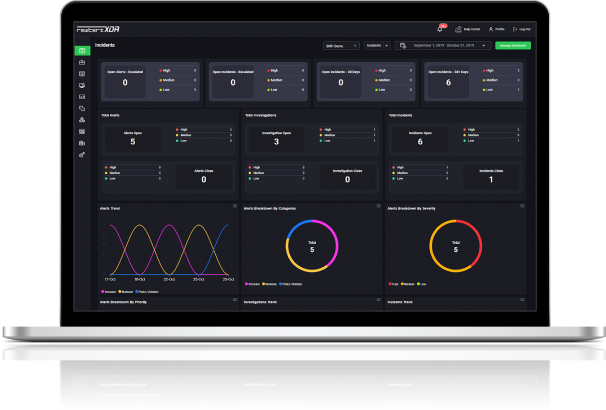

Rewterz Threat Alert – STOP (DJVU) Ransomware – Active IOCs
March 9, 2023
Rewterz Threat Alert – Lazarus APT Group – Active IOCs
March 10, 2023
Rewterz Threat Alert – STOP (DJVU) Ransomware – Active IOCs
March 9, 2023
Rewterz Threat Alert – Lazarus APT Group – Active IOCs
March 10, 2023Severity
Medium
Analysis Summary
CVE-2023-27905 CVSS:6.1
Jenkins update-center2 is vulnerable to cross-site scripting, caused by improper validation of user-supplied input. A remote attacker could exploit this vulnerability to inject malicious script into a Web page which would be executed in a victim’s Web browser within the security context of the hosting Web site, once the page is viewed. An attacker could use this vulnerability to steal the victim’s cookie-based authentication credentials.
CVE-2023-27904 CVSS:3.1
Jenkins weekly and LTS could allow a remote authenticated attacker to obtain sensitive information, caused by the leak of sensitive information when printing an error stack trace on agent-related pages. By sending a specially crafted request, an attacker could exploit this vulnerability to obtain Jenkins configuration information, and use this information to launch further attacks against the affected system.
CVE-2023-27903 CVSS:3.6
Jenkins weekly and LTS could allow a local authenticated attacker to bypass security restrictions, caused by an improper temporary file permissions flaw. By sending a specially crafted request, an attacker could exploit this vulnerability to read and write the file in the Jenkins controller file system.
CVE-2023-27902 CVSS:4.3
Jenkins weekly and LTS could allow a remote authenticated attacker to obtain sensitive information, caused by improper permission validation. By sending a specially crafted request, an attacker could exploit this vulnerability to obtain job workspaces information, and use this information to launch further attacks against the affected system.
CVE-2023-27901 CVSS:6.5
Jenkins weekly and LTS are vulnerable to a denial of service, caused by the use of Apache Commons FileUpload library without specifying limits for the number of request parts. By sending a specially crafted request, a remote authenticated attacker could exploit this vulnerability to cause a denial of service condition.
CVE-2023-27900 CVSS:6.5
Jenkins weekly and LTS are vulnerable to a denial of service, caused by the use of Apache Commons FileUpload library without specifying limits for the number of request parts. By sending a specially crafted request, a remote authenticated attacker could exploit this vulnerability to cause a denial of service condition.
CVE-2023-27899 CVSS:7
Jenkins weekly and LTS could allow a local authenticated attacker to execute arbitrary code on the system, caused by a flaw with temporary plugin file created with insecure permissions. By sending a specially crafted request, an attacker could exploit this vulnerability to execute arbitrary code on the system.
CVE-2023-27898 CVSS:8.8
Jenkins weekly and LTS are vulnerable to cross-site scripting, caused by improper validation of user-supplied input. A remote attacker could exploit this vulnerability to inject malicious script into a Web page which would be executed in a victim’s Web browser within the security context of the hosting Web site, once the page is viewed. An attacker could use this vulnerability to steal the victim’s cookie-based authentication credentials.
Impact
- Code Execution
- Denial of Service
- Security Bypass
- Information Disclosure
- Cross-Site Scripting
Indicators Of Compromise
CVE
- CVE-2023-27905
- CVE-2023-27904
- CVE-2023-27903
- CVE-2023-27902
- CVE-2023-27901
- CVE-2023-27900
- CVE-2023-27899
- CVE-2023-27898
Affected Vendors
Jenkins
Affected Products
- Jenkins update-center2 3.14
- Jenkins weekly 2.393
- Jenkins LTS 2.375.3
Remediation
Refer to Jenkins Security Advisory for patch, upgrade or suggested workaround information.








